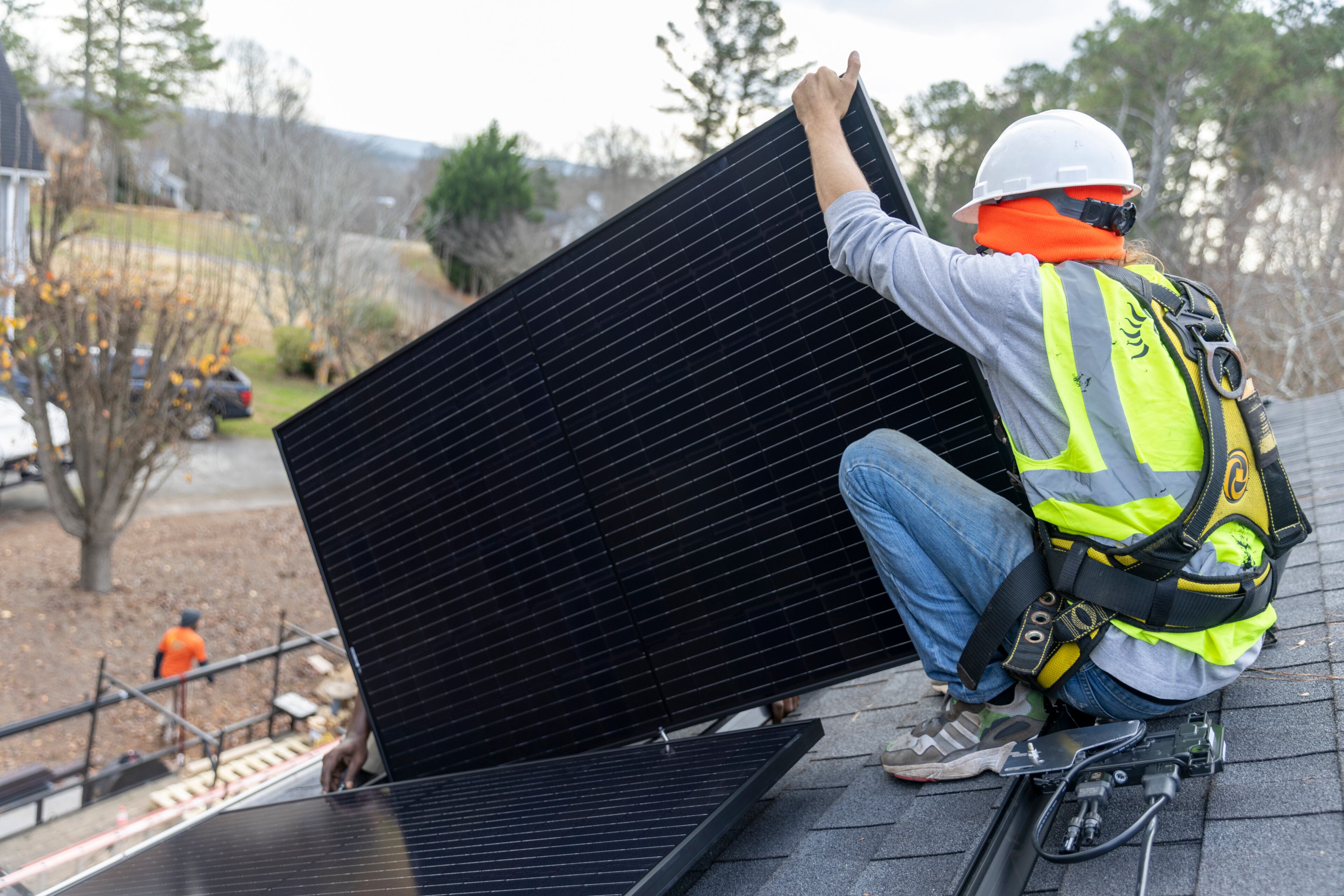Georgia Power still opposed to expanding popular rooftop solar program

A new federal climate and health law is delivering billions in incentives to expand solar power, and Georgia Power plans to grow the share of electricity it generates from the sun in the years ahead. But the state’s largest utility remains opposed to expanding a popular solar program advocates say would encourage more households to install panels on their roofs.
In testimony last week before the Georgia Public Service Commission (PSC), Georgia Power staff told state regulators that as solar customers save on their energy bills, they are shifting costs onto others without rooftop solar. Solar advocates pushed back on those claims last week, arguing that the supposed cost shift is mere pennies per year compared to Georgia Power’s 10-figure annual profits.
The fight centers on a rooftop solar “net metering” pilot program created in 2019 by the PSC.
On cloudless days when the sun is shining, customers with solar panels often do not use all of the electricity they produce. All customers with rooftop solar can push electricity they don’t use back onto the grid. But enrollees in net metering are credited at a higher rate for their electrons than non-participants, allowing them to cut their bills even more dramatically.
Solar is seen as one of the key ways to reduce the climate change impact of Georgia’s electricity sector, one of the state’s largest contributors of greenhouse gas emissions.
The net metering program spurred a boom in new solar installations, but it was limited to 5,000 participants and has been maxed out since last summer. In July, a proposal from PSC Vice Chairman Tim Echols to expand the program failed, but commissioners agreed to revisit the issue this fall and asked the company to provide data showing the customer impact.
Georgia Power estimates that pilot program participants shift $1.4 million in costs annually onto its other customers’ bills, while enjoying the benefits of the company’s grid without paying to maintain it.
" ... Monthly netting customers only provide and offset the cost of energy they use, but are compensated as if they provide utility services they don’t actually provide, such as the cost incurred for delivering that electricity,” said Larry Legg, Georgia Power’s director of pricing and rates.

Despite the pilot program reaching its cap, the company says it has continued to see rooftop solar installations equal to or exceeding levels during the program. Now, with President Biden’s signature climate law extending billions of dollars in incentives to businesses and consumers aimed at expanding renewable energy, the company says net metering isn’t necessary to push customers to solar.
Other witnesses in the hearings last week said they disagreed with Georgia Power’s analysis.
Kevin Lucas, a senior director at the Solar Energy Industries Association (SEIA), and Thatcher Young, a SEIA board member, testified that they estimate the cost shift the company is claiming adds just $0.20 annually to the average Georgia Power residential customer’s annual bill.
Georgia Power’s proposed rate hikes, which the commission is currently weighing, would add $200 annually to the average household’s electricity costs over the next three years.
In the first nine months of this year, Georgia Power reported profits of nearly $1.9 billion, up about 80% compared to the same period last year.
Lucas also pointed out that Georgia Power has consistently earned profits above its target return rate, a metric known as “return on equity” or ROE.
“In 2021, the company collected $258 million above it’s approved ROE,” Lucas said. “So the question about whether this $1.4 million represents revenue erosion that the company should have collected, it simply does not.”
As part of its request to raise rates nearly 12% over the next three years, Georgia Power is asking the PSC not to expand the net metering pilot program and apply a one-time $200 fee to connect any new rooftop solar systems to the grid. Going forward, the company also wants to place all rooftop solar customers on its “Smart Usage” rate plan, which several witnesses in last week’s hearings testified often drives up electricity bills, particularly in homes that use less power.
Georgia Power also said the pilot program has led to a proliferation of misleading solar installers and said it would like to establish a “formal framework” for referring bad actors to the state Attorney General’s office.
The commission will make a decision on whether to approve or adjust the company’s proposed plan in late December.
A note of disclosure
This coverage is supported by a partnership with 1Earth Fund, the Kendeda Fund and Journalism Funding Partners. You can learn more and support our climate reporting by donating at ajc.com/donate/climate/



